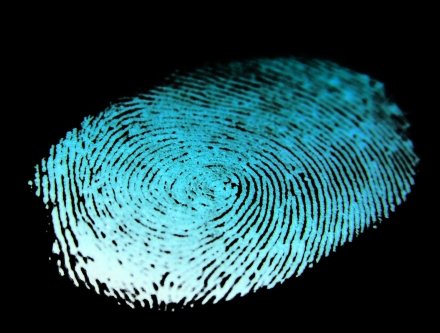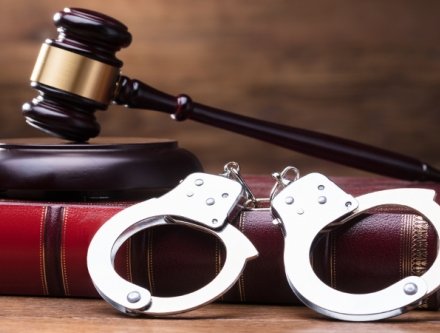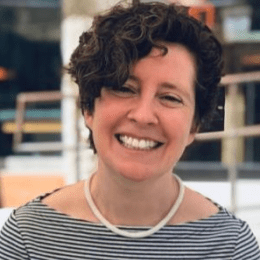
Criminal Justice
- 120 Credits
- School of Social and Behavioral Sciences
- Bronx
- Manhattan
- Westchester

Criminal Justice Overview
Criminal Justice is a challenging, exciting, rewarding career—it requires fast thinking and often independent problem solving from one situation to another. The critical and creative thinking of Criminal Justice personnel is constantly being put to the test: from the police officer improvising to de-escalate a confrontation to the public defender who has to develop the best argument to defend their client or the rehabilitation worker who must motivate youth away from substance use/abuse. The 4-year Criminal Justice major will prepare you for the profession or help you advance if you're already in it.
The greatest strength of the criminal justice program at Mercy University is the academic and professional diversity of the faculty, which includes attorneys, law enforcement officers, and other professionals who have had hands-on experience in the criminal justice system in the metropolitan area.
Graduates have found employment in agencies and organizations such as:
- Police departments
- Corrections departments
- Social service agencies
- Victim's assistance agencies
- Youth counseling agencies
- Private security and insurance companies
Many students also continue on to law school or graduate study in Criminal Justice and related fields.

Career Opportunities
Graduates of the Criminal Justice bachelor's program pursue positions in:
- law enforcement
- corrections, including probation and parole
- court officers and other court personnel
- social service agencies
- victims' assistance agencies
- private security
- insurance companies

What to Know
Deepen your understanding of the criminal justice system and widen your career options in the field. Learn the major concepts, theoretical perspectives, and basic structures involved with law enforcement, the criminal course system, and corrections, and the causes of crime and delinquency. Students learn the fundamentals of law enforcement through comprehensive coursework, field placements, and hands-on learning that takes you outside of the classroom and into the real world.
Should students wish to specialize, two concentration tracks are also offered:
Frequently Asked Questions
A four-year program designed to enhance the career of someone already in criminal justice, or prepare you if you’re not.
Full-time students can complete the 120-credit degree program in four years.
In addition to general liberal arts curriculum, the specialized courses include the Criminal Justice System, the Corrections System, Criminal Procedure, Constitutional Law issues, the impact of crime on the victim and on law enforcement officers, drugs and several other related issues. Sociology, philosophy and psychology courses are also included.
The student body in our program includes male and female adult students of all ages. Our students include police, court, and correction personnel, as well as other professionals who are already employed in the field.
Criminal Justice Internships
Criminal Justice juniors and seniors are encouraged to acquire field experience by completing a 3-credit elective internship course: CRJU 399 Internship in Criminal Justice. Students can check for positions available in agencies such as US Marshal, Westchester Corrections, Department of Public Safety, Department of Probation, state addictions treatment programs, among others, by signing into Mercy's Handshake. Students are expected to 1) seek and apply for the internship opportunity as instructed in the Handshake posting, prior to beginning of semester; 2) register for CRJU 399; 3) complete minimum of 150 hours at agency. For additional information contact: Dr. Mary Cuadrado at mcuadrado1@mercy.edu or (914) 674-7454.
Program Details & Curriculum
General Education Requirements: 60 Credits
Major Concentration
Criminal Justice: 36 Credits
Open Electives: 24 Credits
Total: 120 Credits
For a full curriculum listing visit our catalog.
Students who choose the major concentration in Criminal Justice must complete:
- CRJU 102 Intro Criminal Justice System
- CRJU 204 Introduction to Corrections
- CRJU/ SOCL 212 Criminology
- CRJU 236 Criminal Court Process
- CRJU 253 Policing
- CRJU 396 Research Methods in Criminal Justice
- CRJU 401 Senior Seminar
In addition, students must select any five courses in total from Criminal Justice numbered 200 or above or from the following approved electives:
- LAWS 203 Law of Evidence
- LAWS 255 Managing Human Conflict I
- LAWS 256 Managing Human Conflict II
- PSYN 209 Intro to Forensic Psychology
- PSYN 244 Social Psychology
- PSYN 312 Abnormal Psychology
- PSYN 340 Psychology of Crisis
- SOCL 201 Law, Order & Justice
- SOCL 206 Sociology of Violence
- SOCL 236 Social Deviance
- SOCL 315 Terrorism
- SOCL 370 Stats Socl/Behv Sciences
- CRJU 399 Internship Criminal Justice*
* It is strongly recommended that students who have no experience in the Criminal Justice field enroll in CRJU 399.
There is an 18-credit residency requirement in the major concentration of Criminal Justice. PSYN 101 is a prerequisite for all PSYN courses numbered 120 and above. SOCL 101 is a prerequisite for all SOCL courses numbered 120 and above. PSYN 101 and SOCL 101 fulfill part of the General Education requirements. All the courses in this category fulfill Liberal Arts requirements.
Students may also participate in the CASAC-T Credentialed Alcoholism and Substance Abuse Counselor Standardized 350-Hour Education and Training program.
Download a copy of the sequence map for:
Archive
Full-Time Faculty
Brian Kelly
- VIC 100H
- bkelly18@mercy.edu
Jeong Lim Kim
- MaH B06
- jkim50@mercy.edu
- (914) 674-7372
Illya D Lichtenberg
- MaH B11
- ilichtenberg@mercy.edu
- (914) 674-3038
Christopher Maggio
Part-Time Faculty
Academy of Criminal Justice Sciences Endorsed Program






















